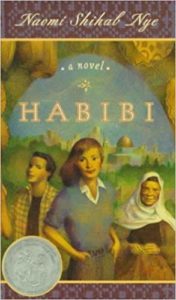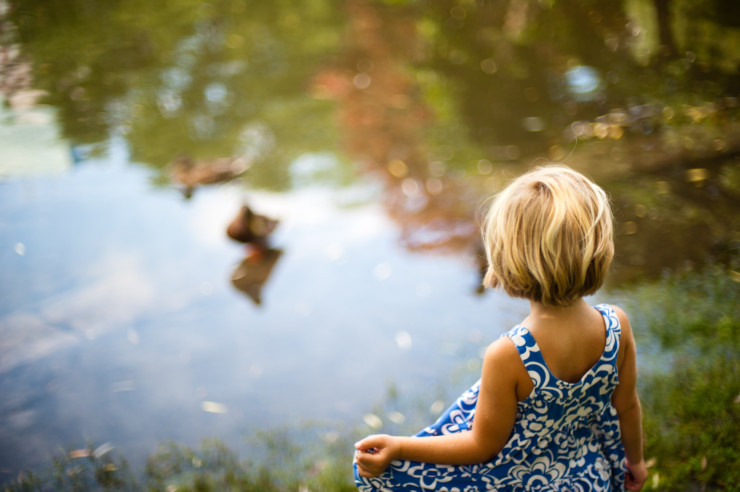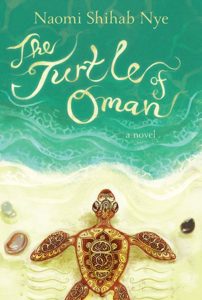Oh!
My own bus was going by and it didn’t even look at me.
It just left me here.
That three-line impromptu poem was spoken by Naomi Shihab Nye’s grandson. In more than one interview Nye has talked about the importance of writing three lines a day or three sentences a day (I take it for a haiku a day). When she heard his heartfelt words about one of San Antonio’s turquoise VIA buses, she wrote them down, in three-line form. I believe she was chosen as Poetry Foundation’s Young People’s Poet Laureate for this very reason: she encourages poetry, especially in young people.

I read The Turtle of Oman a few months ago. It’s a quiet book, about a boy spending a week with his grandfather before moving to America with his parents. I took notes on all the sentences that sparkled at me, like this one: “He learned how to read shoes first. Then he learned to read books.”
In 2013 Nye received the Neustadt Award for Children’s Literature, known as the American Nobel. She was also given the honor of presenting the annual May Hill Arbuthnot Honor Lecture in 2018 to the American Library Association. Reading through the list of recent honorees, some of the lecture titles (even from authors I admire) sounded a bit like taking medicine. Nye’s was titled “Refreshments Will Be Served: Our Lives of Reading and Writing.” It was about welcoming books into your life, valuing libraries, and sharing stories with children.
In her speech, she said this:
I have noticed that audiences of children have not changed much recently. But audiences of adults these days often have a more desperate feel, as if they want any speaker to hand them passwords for sanity — a magical code for survival during weird times. And all any of us can do is tell the best things we know.
The best thing I know is children.”
Children in Palestine and children in Oman and children in Ferguson and San Antonio and children in rural areas, where Nye visited over her fifteen-year stint as a visiting writer with the Texas Commission on the Arts.
Nye has said her goal in this position is to bring poetry to children in underserved areas. She also plans to share poetry book recommendations specifically for young readers.
I am excited about this not only because Nye’s poem Kindness is one of my absolute favorites, but also because her approach to poetry is welcoming. In the Arbuthnot Lecture, she gave this tip for reading poetry:
And definitely, please forget about explanations. Poetry prefers hinting, insinuating, suggesting, leaping, triggering.”
Playing hide and go seek, as it were.
Nye wrote the following poem to be read at the opening of a new library. It’s about the kind of girl Nye has met all around the world, one who remains curious despite life’s struggles, one who can find exactly what she needs in a book because “ The book has already lived through its troubles. ”
Because of Libraries We Can Say These Things
She is holding the book close to her body,
carrying it home on the cracked sidewalk,
down the tangled hill.
If a dog runs at her again, she will use the book as a shield.
She looked hard among the long lines
of books to find this one.
When they start talking about money,
when the day contains such long and hot places,
she will go inside.
An orange bed is waiting.
Story without corners.
She will have two families.
They will eat at different hours.
She is carrying a book past the fire station
and the five and dime.
What this town has not given her
the book will provide; a sheep,
a wilderness of new solutions.
The book has already lived through its troubles.
The book has a calm cover, a straight spine.
When the step returns to itself,
as the best place for sitting,
and the old men up and down the street
are latching their clippers,
she will not be alone.
She will have a book to open
and open and open.
Her life starts here.
Journal With Me?
1. Using details from the poem, what are some of the difficulties this girl faces?
2. The word “spine” has more than one meaning. How might each one help you understand this girl and this poem?
3. Write a summer memory you have of going to the library.
4. If you could give this girl one book, what would it be?
Photo by lee, Creative Commons, via Flickr. Post by Megan Willome.
Browse more children’s poetry
“Megan Willome’s The Joy of Poetry is not a long book, but it took me longer to read than I expected, because I kept stopping to savor poems and passages, to make note of books mentioned, and to compare Willome’s journey into poetry to my own. The book is many things. An unpretentious, funny, and poignant memoir. A defense of poetry, a response to literature that has touched her life, and a manual on how to write poetry. It’s also the story of a daughter who loses her mother to cancer. The author links these things into a narrative much like that of a novel. I loved this book. As soon as I finished, I began reading it again.”
—David Lee Garrison, author of Playing Bach in the D. C. Metro
- Perspective: The Two, The Only: Calvin and Hobbes - December 16, 2022
- Children’s Book Club: A Very Haunted Christmas - December 9, 2022
- By Heart: ‘The night is darkening round me’ by Emily Brontë - December 2, 2022



L.L. Barkat says
I really like: “He learned how to read shoes first. Then he learned to read books.”
I could see a list poem from that. Something along the lines of “First, We Learned to Read.”
This made me laugh 🙂 : “Reading through the list of recent honorees, some of the lecture titles (even from authors I admire) sounded a bit like taking medicine.”
Then, how wonderful… “ The book has already lived through its troubles. ”
As to your journaling questions, number 4 stood out to me. I was maybe that girl, once upon a time. And L’Engle’s A Wrinkle in Time and Lewis’s The Lion, the Witch, and the Wardrobe were fantasy enough to take me away to where anything could come true and reality enough to know that these fantasy characters were, well, real enough to identify with and look to. Would I give these books to that girl? Maybe. Or I might give her a library card instead. And permission to go to any stack in the building.
Megan Willome says
“The Turtle of Oman” is such a lovely, quiet book. I have a couple of pages of poetic quotations, any one of which could become a poem.
One reason I wanted to teach “A Wrinkle in Time” for the Writing Toward Joy workshop is because it is that kind of book for so many young women. But we never know what book will resonate, so I like your idea of a library card.
Sandra Heska King says
Yay fir NSN!
I liked this line (for one):
“If a dog runs at her again, she will use the book as a shield”
The book is causing her to stand up straight, giving her strength to protect her self from attacking dogs, or other things that might come against her. I wonder what book it could have been. It must have been a large, sturdy one to hold against her body rather that grasp with her hand. So it surely wasn’t a paperback.
“An orange bed is waiting.
Story without corners.”
I liked those lines, too. I’m picturing her curled up in bright colors, not hemmed in by black and white. There are no boundaries in a book.
Sandra Heska King says
*for* sigh… I guess I got too excited.
Megan Willome says
I love the way you’re engaging with this poem, Sandy, especially your thoughts about what kind of book what block a dog. And I would imagine that, having fended off one treat, she might remember the title and feel emboldened to fend off others.
When did we give up our orange bedspreads, you know? My childhood one was yellow with orange and white and mustard-colored butterflies.
Bethany R. says
Beautiful post, thank you for writing it. I’m going to share this with my son. The journaling questions will make for great conversation. 🙂
Megan Willome says
I hope so, Bethany! Journaling through poems is one of my daily practices. Let me know if anything interesting/sharable emerges.